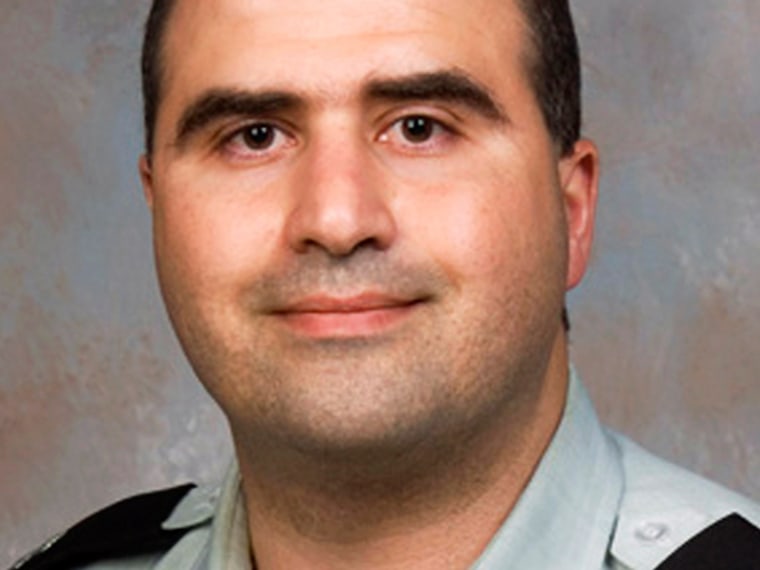Army Secretary John McHugh has ordered disciplinary action against nine officers for allegedly failing to flag any potential warning signs related to Maj. Nidal Hasan, accused of killing 13 soldiers at Fort Hood in November 2009, NBC News has learned.
The nine officers were in Hasan's chain of command at the Walter Reed Medical Center and the military's medical school. Hasan, an Army psychiatrist, allegedly showed signs of Islamic radicalization that were ignored by superior officers.
While the Army's investigation found "no single event" that led to the Fort Hood shootings, "certain officers" in Hasan's chain of command "failed to meet the high standards expected of them," McHugh found.
McHugh also ordered the Army Surgeon General to review the Army Medical Commands training and evaluation of all medical officers. Investigators allege that Hasan's evaluation reports were inflated so he could be promoted and continue practicing at a time when the Army had a shortage of psychiatrists.
Since the action "non-judicial punishment" is not criminal, and the nine accused officers have the right to appeal, the Army is prohibited from releasing the identities of those facing discipline.
In February, a bipartisan Senate report found that the Department of Defense and the FBI had enough information about Hasan to have discharged him from the military before the deadly shooting spree that also left 32 wounded.
The report on the Texas army base shooting, authored by Senate Homeland Security Committee Chairman Joe Lieberman, I-Conn., and top Republican Susan Collins, R-Maine, said that both agencies were aware of Hasan's radicalization to violent Islamist extremism "but failed both to understand and to act on it."
"Although both the public and the private signs of Hasan's radicalization to violent Islamist extremism while on active duty were known to government officials, a string of failures prevented these officials from intervening against him prior to the attack," the report said in its executive summary.
The senators said their investigation found "specific and systemic failures" in the government's handling of the case and cited additional concerns about possible broader systemic issues. "The FBI and DoD together failed to recognize and to link the information that they possessed about Hasan," they wrote.
Hasan's move toward violent Islamist extremism "was on full display to his superiors and colleagues during his military medical training,” according to the report’s findings. One instructor referred to Hasan as "a ticking time bomb."
"Not only was no action taken to discipline or discharge him, but also his Officer Evaluation Reports sanitized his obsession with violent Islamist extremism into praiseworthy research on counterterrorism."
In a stinging charge against the Defense Department's handling of the matter, the report added, "DOD possessed compelling evidence that Hasan embraced views so extreme that it should have disciplined him or discharged him from the military, but DoD failed to take action against him."
While the inquiry credited one FBI Joint Terrorism Task Force unit for initially flagging Hasan because he was communicating with a suspected terrorist, it criticized a second unit's follow-through. According to the report, the second JTTF unit "failed to identify the totality of Hasan's communications" and didn't inform Army security about them.
"Instead, the JTTF inquiry relied on Hasan's erroneous Officer Evaluation Reports and ultimately dismissed his communications as legitimate research," the senators write.
The report suggests that because the two FBI units had different views of the severity of other unit's findings, the matter was eventually dropped "rather than cause a bureaucratic confrontation."
"The JTTFs never raised the dispute to FBI headquarters for resolution, and entities in FBI headquarters responsible for coordination among field offices never acted. As a result, the FBI's inquiry into Hasan ended prematurely,” it said.
NBC's Ken Strickland contributed to this report.
